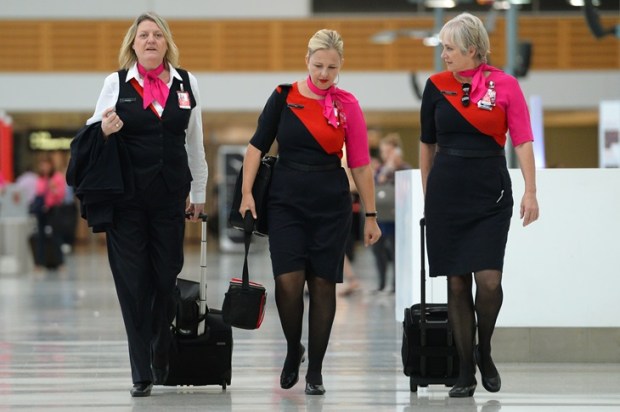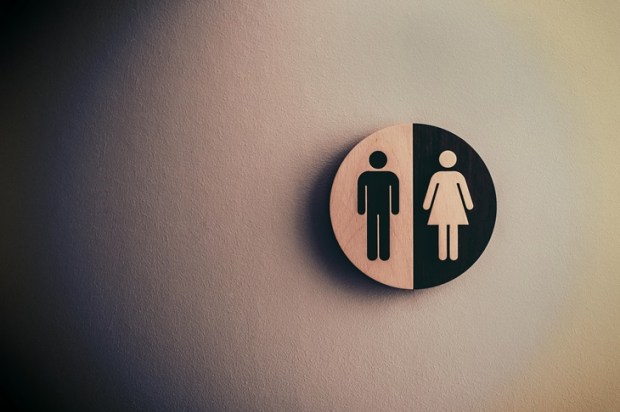You already have my sincere apologies; I recognise that there is no commentary so tiresome these days as that on the parliamentary gender balance.
There is a never ending tirade of people wanting to ceaselessly point out the obvious (‘wow, there are like no women’) without advocating any real solutions.
The worst form of this is the middle class white 25-year-old male who puts up a Facebook status feigning outrage on the lack of women in parliament like it’s an issue he has thought about for more than five seconds in between FIFA games. Maybe he sincerely feels like he is the saviour of women, or more likely he does it for the 87 status likes, either way it’s never more than a feel-good public whinge. If I can leave you with any advice, please don’t be this guy.
When John Howard fronted the press gallery this week he sought to dig a bit deeper on the sociology of the gender balance in parliament. Predictably, the press sought to attack him labelling him a ‘sexist’ and a ‘misogynist’ for merely stating that historically women had been the primary caregivers and therefore had not entered politics at the same rate as men.
This isn’t a state secret, this is a historical fact, and unfortunately not even a former prime minister can re-write history. But instead of addressing his concept that maybe the gender balance was strongly linked to society in some way, the cronies of the press frothed at the mouth at the chance to attack a conservative once more.
Maybe they could have explored the idea that there are still structural disadvantages for mothers in public life that could be eased, but they didn’t. I suppose it’s much easier and more time efficient for a journalist on a deadline to rehash some old lines and point the finger at a former prime minister than it is to propose any real contemporary solutions.
The conversation around gender and politics has become less of a discussion and more of a mud flinging match. These days at the end of any public ‘discussion’ on the parliamentary gender balance, women are still standing where they were, only a little more tired and covered in slop.
The fact of the matter is that it is not the government’s role to forcibly determine the ratio of women in parliament, or rather any profession for that matter. It is however, a challenge for every Australian to ascertain whether there is equality of opportunity when it comes to both females and males entering parliament.
John Howard understood this better than most, and unlike our above mentioned online warriors, he had tangible outcomes. Sure he wasn’t interested in targeted quotas and expresses that the notion of aspirational targets is a bit vague. I too find the idea of “aspirational targets” without substance and more or less a load of polly-waffle designed to get the haters of the case.
However, what he did understand was flexibility for women in the work and home. John Howard was an enormous advocate for women in the workforce, preaching on many occasions the wonders it did for the economy. Coupled with Peter Costello, he was also a staunch defender of the contribution of mothers with Costello’s “one for mum, one for dad and one for the country” mantra. Their New Tax System and child care policy protected vulnerable families, enabling flexibility to make choices in employment and home life that best suited them.
I am a young female in politics who would love to see more women in parliament. This is not because I think I might be more adequately represented on a federal level if there were more female parliamentarians. I am almost certain I wouldn’t be judging by the current cohort that Labor seem to have flung into spots of convenience.
I do fundamentally believe however, that Australia is missing out. It is imperative that we are always preselecting and electing the best people for the job, and while structural and cultural issues persist, parliament and Australia are unknowingly excluding some of the brightest and most passionate minds in the country. We need to focus on having 100 per cent of the best, rather than 50 percent female.
So before we hit the point of no return, we need to change the way we talk about this issue or we risk alienating the whole of society out of sheer fatigue and boredom.
Ultimately, this isn’t just about what women deserve, it’s about what the Australian voters deserve. They deserve to have all the best options available when they are choosing who should represent them and women have so much to offer.
Brigid Meney is a former adviser to the Coalition government and a NSW Young Liberal branch president
Got something to add? Join the discussion and comment below.
Get 10 issues for just $10
Subscribe to The Spectator Australia today for the next 10 magazine issues, plus full online access, for just $10.

























Comments
Don't miss out
Join the conversation with other Spectator Australia readers. Subscribe to leave a comment.
SUBSCRIBEAlready a subscriber? Log in